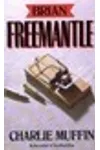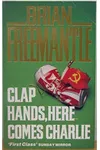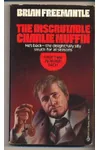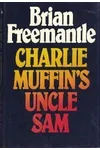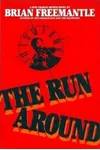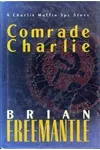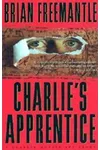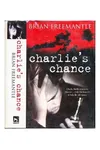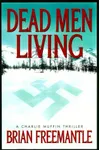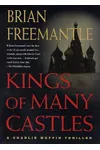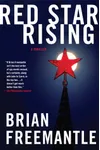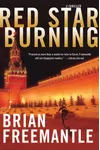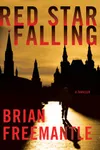Step into the shadowy, thrilling world of Charlie Muffin, where a scruffy, working-class spy outwits everyone from KGB operatives to his own snobbish bosses! Brian Freemantle’s Charlie Muffin series is a gem in the spy thriller genre, blending Cold War intrigue, sharp wit, and a lovable underdog hero. Across 18 novels, Charlie’s cunning and unconventional style make every page a delight for fans of espionage with a twist.
How Charlie Muffin Began
Brian Freemantle, a former journalist born in Southampton, England, in 1936, crafted Charlie Muffin in 1977 with the novel Charlie M. Drawing on his experiences covering global politics, Freemantle created a spy who defied the suave, upper-class James Bond stereotype. Charlie, with his rumpled suits and disdain for authority, was a breath of fresh air, reflecting the gritty realism of Cold War espionage. The series grew into a cult favorite, praised for its authenticity and clever plotting.
The Heart of Charlie Muffin
The series kicks off with Charlie M (1977), where Charlie, a seasoned British Intelligence operative, faces betrayal from his aristocratic superiors who view him as a relic. His mission to handle a KGB general’s defection unveils a web of double-crosses, showcasing his knack for turning the tables. Here Comes Charlie M (1978) sees Charlie dodging his own agency’s attempts to eliminate him, proving his resourcefulness. The Blind Run (1985) is a fan favorite, with Charlie imprisoned and outsmarting the KGB, while Comrade Charlie (1992) dives into post-Cold War chaos.
Themes of class conflict, betrayal, and survival pulse through the series. Charlie’s working-class roots clash with the Oxbridge elite, making him a relatable hero who thrives on brains, not brawn. Freemantle’s prose is crisp, laced with dry humor and intricate plots that mirror John le Carré’s complexity but feel more accessible. Set against Cold War and post-Soviet backdrops, the novels explore loyalty, deception, and the moral grayness of espionage.
Why Charlie Muffin Resonates
Charlie Muffin’s enduring appeal lies in his everyman charm and defiance of spy clichés. The series, with over ten million copies sold worldwide, has influenced modern espionage writers by grounding the genre in human flaws and sharp dialogue. Its nomination for the Edgar Allan Poe Award in 1986 for Charlie M underscores its critical acclaim. Fans on platforms like Goodreads praise its addictive quality, calling it a ‘fine wine’ of spy fiction that rewards loyal readers.
- Publication Years: 1977–2013
- Number of Books: 18
- Awards: Nominated for the Edgar Allan Poe Award (1986)
- Author: Brian Freemantle, also known as John Maxwell, Jonathan Evans
Grab Charlie M and dive into a world of espionage where the scruffiest spy steals the show!
